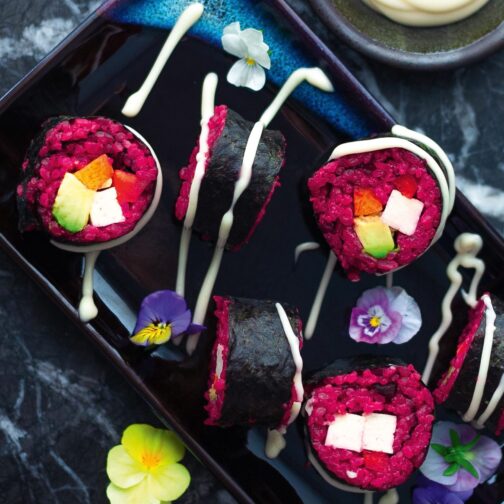
Do you just want to win the fight? Or are you ready to create the authentic, loving relationship you’ve always wanted?
I don’t know about you, but there’s a stubborn part of me that just loves to be right! This part likes to prove my partner is in the wrong and deflect any kind of responsibility when I am. This, my friends, is our ego. It’s the part of yourself that protects you from feeling hurt, embarrassed, ashamed, or wrong – and will do just about everything it can to defend itself (aka, you!).
While this might not sound so bad, it doesn’t go so well when you’re in a relationship, and especially when you are in an argument with two egos at play. This can lead us down a path of emotional manipulation. We might shut our partner out and give them the cold shoulder. I think we’ve all been in ‘don’t talk to me, don’t look at me, don’t breathe near me’ land. It can ruin an entire day. In truth, this isn’t the place either person wants to be in.
When I have acted in this way towards my partner, I know deep down it isn’t in alignment with my values or my authentic self. But the ego will excuse bad behaviour and blame it on lack of sleep, the kids, the house being messy, or just about anything else to avoid admitting fault.
Feeling the hurt we’ve inflicted on our partner doesn’t feel so crash hot. But when we do admit fault and eat that not-so-tasty humble pie, we land back in our hearts. And this leads to a more open, loving, and authentic relationship dynamic.
Here are some pieces of humble pie that can strengthen your relationship, with yourself and with each other.
I WILL LISTEN
Do you talk over your partner in an argument? Perhaps you want to make a point that’s bigger and better than theirs? Yep, me too. But this doesn’t get us anywhere. When any of us feel unheard, we feel misunderstood and unacknowledged, and this hits some pretty deep childhood wounds. In a relationship, you both deserve to be heard, which means you need to listen up. When you actively listen to what your partner is sharing, you may even be able to hear the real message behind their words. If you can acknowledge how they feel and even what they’re not saying, real healing can take place.
I WILL SPEAK MY TRUTH
Being the first one to put down the ego’s sword and armour can be tough. However, waiting for the other person to make a move can create even greater stress in yourself and more tension between the two of you. You’ll tell yourself that it’s weak to make the first move or to be vulnerable – but being vulnerable is different to being a pushover. From your heart, tell your partner you’re hurting, that you want better for the relationship, or anything else your heart needs to share. Speaking your truth will free you. So be brave, tell your truth, and let the outcome unfold.
I’M LETTING IT GO
When you notice an argument is going around and around in circles about the same thing, going nowhere, then pull the pin on your need to be right. Or at the very least, take a breather and put some space between you, so you can both cool your jets. While taking this space, focus on clearing the charged thoughts in your mind and emotions in your body. You might write down all your thoughts and feelings to help purge them, take a walk to clear and calm your nervous system, or whatever is constructive for you to loosen up and let go of the restricted view you currently have.
I TAKE RESPONSIBILITY
You can’t change your partner’s responses or make them take responsibility for their actions, but you can choose to swallow your own egoic pride. Taking responsibility for your contribution to an argument will help you to grow and evolve, and hopefully your relationship too. Take a minute (or 10) to observe how you spoke, the tone you used, and how you reacted emotionally and physically. By taking responsibility for yourself and your behaviour, your self-awareness grows and there is room for positive change – for you and the relationship.
I’M SORRY
There are two very good reasons to say sorry. The first is to apologise to your partner when you are dead set in the wrong. You may have acted out while they have legit done nothing but breathed in the same space as you. Say sorry when your response is out of proportion to what’s going on: “Hey, that had nothing to do with you. I’ve got stuff going on that I don’t know how to deal with, and you were an easy target. I’m sorry.”
The second reason is to apologise for how your partner is feeling, but not for how they’re saying you made them feel. If you have authentically shared some tough love with your partner to remain aligned with your true self or for their own benefit, then stay in your power. “I’m sorry that you feel this way right now, but I truly believe that what I shared with you is for your greatest good, even if you don’t agree or can’t see it right now.”
I WILL ASK FOR HELP
We’ve all played the martyr at some point. It gives us a false sense of power and control, but ultimately sets up everyone to fail. Maybe you try and do it all, from cleaning the house, doing the shopping, and cooking the meals to going to work, providing support, and everything else you do to prove you’re fine. But if you keep that facade up, it’s going to come undone pretty quickly. Stop, just stop. It’s okay to ask for help. Lean on your partner a little, let them in. You’ll project less pressure and anxiety onto those in your life. You may even create more harmony around you because you are more chill.
***
What we’re doing here is teaching ourselves to come back to our hearts. For too long, leading with the heart has been seen as weak. We’ve been conditioned to act from our heads, as if that is all that we are. But when the heart is used in combination with courage, vulnerability, and authenticity, your relationship will have a very real chance at being fabulous. When you choose how you show up and contribute to your relationship, you give it the best chance of being everything you would truly love it to be.





















